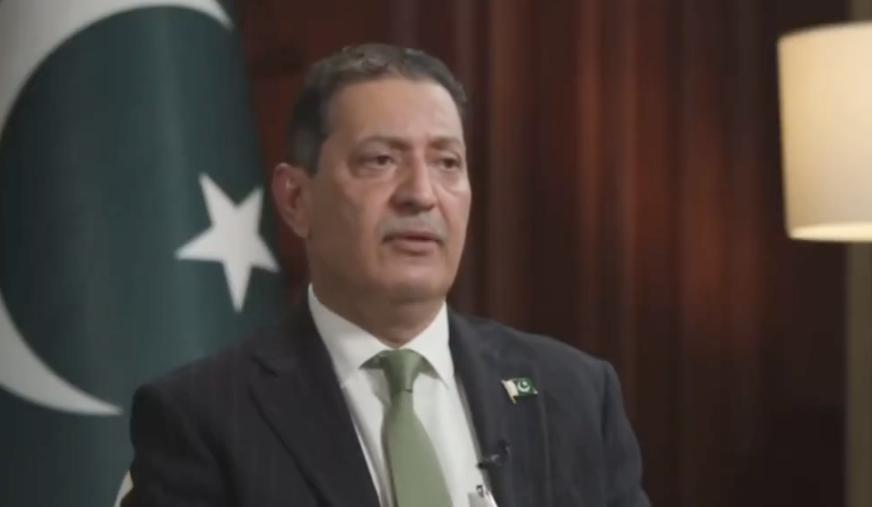
Will Use Full Military Arsenal Including Nuclear Weapons if Attacked by India: Pakistan Envoy
Tensions between India and Pakistan have been escalating in recent weeks, particularly after the Pulwama terrorist attack in Jammu and Kashmir that killed over 40 Indian security personnel. The attack was claimed by the Pakistan-based Jaish-e-Mohammed (JeM) militant group, which has been supported by Pakistan’s military establishment in the past. In response to the attack, India launched a series of airstrikes on JeM training camps in Pakistan, leading to a significant deterioration in relations between the two countries.
In a shocking statement that has sent shockwaves across the region, Pakistan’s Ambassador to Russia Muhammad Khalid Jamali has warned that his country will use its full military arsenal, including nuclear weapons, if it is attacked by India. Speaking to a Russian news agency, Jamali claimed that Pakistan has credible intelligence suggesting that India is planning military strikes on Pakistani territory.
“We have credible intelligence that India is planning to attack Pakistan. We will not hesitate to use our full military arsenal, including nuclear weapons, if India attacks us,” Jamali said in an interview.
Jamali also accused India of suspending the Indus Waters Treaty, which regulates water sharing between the two countries, as an act of war. The treaty was signed in 1960 and has been a key component of the Indo-Pakistani bilateral relationship. Its suspension has significant implications for Pakistan, which relies heavily on the Indus River and its tributaries for irrigation and other purposes.
Pakistan’s threat to use nuclear weapons is not new, but it is significant given the current tensions between the two countries. In the past, Pakistan has threatened to use nuclear weapons in response to Indian aggression, but these threats have been largely seen as a bluff. However, in the current context, the threat takes on a new significance, particularly given the rising tensions and the lack of a clear diplomatic solution to the conflict.
The escalation of tensions between India and Pakistan is a cause for concern not just for the two countries, but also for the wider region. The conflict has the potential to destabilize the entire region, particularly given the presence of nuclear weapons in both countries.
Pakistan’s diplomats have been making similar warnings in recent days. Last week, Pakistan’s Foreign Office spokesperson Mohammad Faisal warned that Pakistan would not hesitate to use all options available to it to defend its sovereignty and territorial integrity. “Pakistan will not compromise on its sovereignty and territorial integrity,” Faisal said in a statement.
The escalation of tensions between India and Pakistan has also raised concerns about the potential for a nuclear conflict. Both countries have significant nuclear arsenals, and a conflict between them could have catastrophic consequences for the region and the world.
The international community has been trying to mediate a peaceful resolution to the conflict, but so far, its efforts have been unsuccessful. The United States, which has significant interests in the region, has called for restraint from both sides and has urged them to engage in diplomatic talks to resolve their differences.
In the meantime, the people of India and Pakistan are living in fear of a potential conflict. The escalation of tensions has led to a significant increase in military deployments along the border, and there are reports of Indian and Pakistani troops engaging in a series of skirmishes along the LoC.
In conclusion, the statement by Pakistan’s Ambassador to Russia is a significant development in the ongoing crisis between India and Pakistan. The threat to use nuclear weapons is a serious one, and it has the potential to have catastrophic consequences for the region and the world. The international community must continue to work towards a peaceful resolution to the conflict, and the people of India and Pakistan must remain vigilant and prepared for any eventuality.
News Source:



